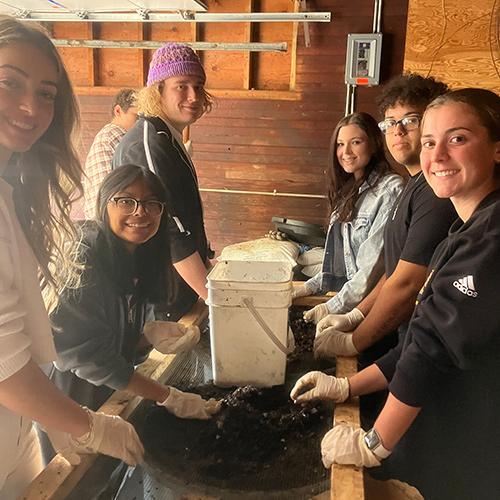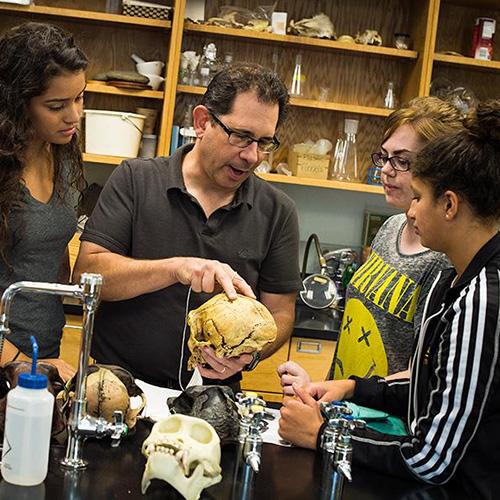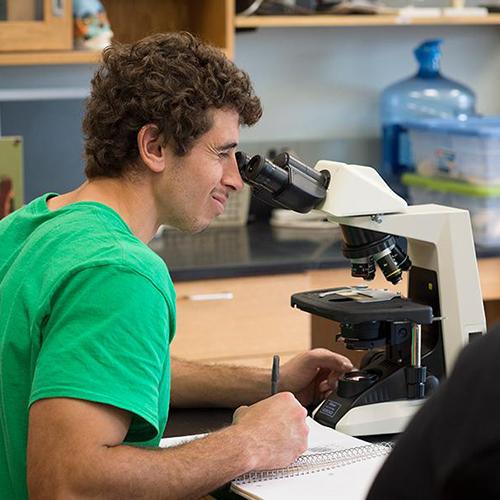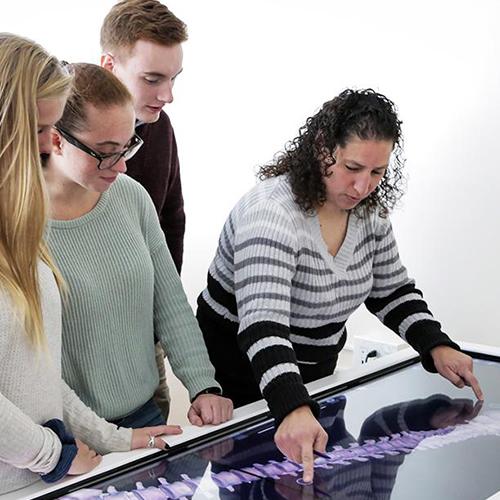How To Become a Biology Teacher
Why Become a Biology Teacher?
Pursuing a career as a biology teacher opens up a world of possibilities. It provides you with the exciting opportunity to share your passion for the life sciences with eager students and to nurture your own teaching and leadership skills.
Together, you and your students will explore biological evolution, biodiversity and much more. You’ll guide students as they develop their own understanding and practice of science literacy, which forms the fundamental knowledge of their ongoing science instruction.
If you’re excited about influencing students’ science education and making a lasting impact on a generation of young learners, then teaching biology will be a fulfilling career path for you.
What Does a Biology Teacher Do?
Biology teachers have the unique opportunity to introduce students to biological systems and encourage their natural curiosity about their world. While elements of biology are incorporated into elementary school science curricula, biology teachers primarily work with middle schoolers and high schoolers due to more advanced subject matter.
Teaching biology requires you to cover a wide range of subject matter to ensure your students have a fundamental understanding of the natural life that surrounds them. You'll introduce your students to studying how living things reproduce, human heredity and the role of DNA, ecosystems, how organisms relate to each other, the function and composition of cells and much more.
As you and your students investigate the building blocks of life, students will also develop critical thinking skills, learn how to follow the scientific method and grow their written and verbal communication skills.
In addition to instructional duties, biology teachers are responsible for creating curricula in accordance with state educational standards, lesson planning, assigning and grading homework, assessing student progress and maintaining a safe and student-focused classroom environment. Teachers also are responsible for meeting with parents, supervising students during extracurricular activities and attending professional development seminars and various other training courses.
Degree and Certification Requirements to Become A Biology Teacher
Bachelor's Degree
Those interested in becoming a biology teacher have numerous degree paths they can take. However, all of them begin with earning a bachelor’s degree.
For prospective biology teachers who want to work in elementary education, attending a higher education institution and earning a bachelor’s degree in elementary education would be an ideal degree path that would lead them toward their career goals.
If you are interested in teaching in a middle or high school, then it may be best to apply to a college or university that offers a secondary education degree program. Earning a bachelor’s in secondary education will provide you with educator training and hands-on classroom experience while also allowing you to gain specialized knowledge in a concentration, such as biology. Additionally, these degree programs are created in accordance with state licensure requirements and provide students with a quick path to certification.
For those who want to become a biology teacher and already hold a bachelor’s degree in biology, many colleges and universities offer education preparation programs to provide students with the necessary pedagogical training and student-teaching experiences needed to receive a teaching certificate. Once you’ve completed your degree program and the educator preparation program, you’re on your way to certification.
Learn More: Education (BA, BS)
State Teaching Certification
The process of securing your teaching certificate may differ from state to state. Typically, to acquire proper teaching certification, prospective biology teachers must:
- hold a bachelor’s degree or higher;
- complete a student teaching experience;
- complete a state-registered preparation program;
- pass both a subject-specific examination and a state certification examination;
- pass a background check.
For instance, if you want to become a teacher working in the state of New York, the New York State Education Department (NYSED) specifies 10 steps to receive certification and guides prospective teachers along the preparation pathway that best suits their career goals and onto receiving their verified New York State certification. Review NYSED’s step-by-step certification process.
While specific certification requirements may differ based on grade level or previous experience, most states offer various paths to certification to accommodate a diverse range of prospective teachers with unique backgrounds and experiences to earn their certification.
For example, if you need an initial certificate and wish to become a classroom biology teacher for adolescent grade levels, there are 11 possible certification pathways available for New York. These pathways accommodate a variety of degree types and past teaching experiences.
To learn more about the certification requirements, visit NYSED’s certification search.
For prospective teachers who want to learn more about state-specific teaching certifications, visit the U.S. Department of Education’s State Contacts directory to find important contact information for your state’s department of education.
What Does the Job Market Hold for Biology Teachers?
With the prioritization of science, technology, engineering and math (STEM) education, biology teachers are an integral part of developing the minds of young learners and building the foundation of their science education.
The U.S. Bureau of Labor Statistics anticipates 47,300 middle school teaching jobs will open each year through 2031. The projection for high school teacher job openings is even higher, with an anticipated average of 77,900 jobs per year. These employment projections for middle school and high school teachers are four percent and five percent, respectively, which is as fast as the national average.
In May 2021, the median annual salary for high school teachers was $61,820 and $61,320 for middle school teachers.
If you have an interest in advancing to administrative positions in the education field, such as a principal, then there is the potential for a significant increase in salary. The median salary for an elementary, middle and high school principal is $98,420. However, the entry-level education required is a master’s degree.
What Skills Are Necessary To Be a Biology Teacher?
Beyond having a versatile and comprehensive understanding of biology and other life sciences, teaching biology requires strong interpersonal skills. As an educator, you will work with students from all sorts of backgrounds and will need the patience, cultural awareness and flexibility to provide students with an experience that suits their needs and will benefit their overall education.
For most students, you are the gateway to life sciences, which are full of complexities. Teachers, especially biology teachers, need the unique gift of making challenging concepts, like the comparison of cellular structures or biochemical reactions, into understandable and engaging lessons. Possessing clear communication skills, creative pedagogical approaches and diligent commitment to your students are vitally important to their success and well-being. These qualities will also support the effectiveness of your teaching and your career growth.
By providing students with a solid foundation in the study of biology, they will continue on to succeed in their other sciences courses and may even inspire them to pursue careers in the science field.
Earning a Master’s Degree in Teaching
Even as an educator, your learning never ends. Continuing your education by earning a master’s degree can benefit your career prospects by developing your expertise in biology and training in areas like instruction and assessment strategies, special education best practices, and education philosophies and values.
Master’s Degree in Teaching Biology at Iona University
For prospective biology teachers interested in earning their master’s degree and jumpstarting their new career in teaching, Iona University has a Master of Science in Teaching (MST). The MST degree program is uniquely designed for those who wish to become educators but are in need of teaching education. It offers several customizable program options, allowing you to tailor your education based on the grade level and subject you want to teach.
Graduates of the MST program receive top-tier education that readies them for the classroom. The curriculum is planned in accordance with the New York State Education Department’s certification regulations, as well as national accreditation standards. After completing the program, students are ready to take the New York State Teachers’ Certification Examinations (NYSTCE) and receive their certification.
To learn more, check out the complete overview of Iona’s M.S.T. Adolescent Education: Biology.
Take the Next Step to Becoming a Biology Teacher
Biology teachers are a formative part of students’ science education. They introduce students to the study of the life around them and the life inside them.
Built upon a quality curriculum and hands-on experience, Iona’s Master of Science in Teaching degree provides you with the comprehensive training and certification pathway needed to achieve your professional goals.







